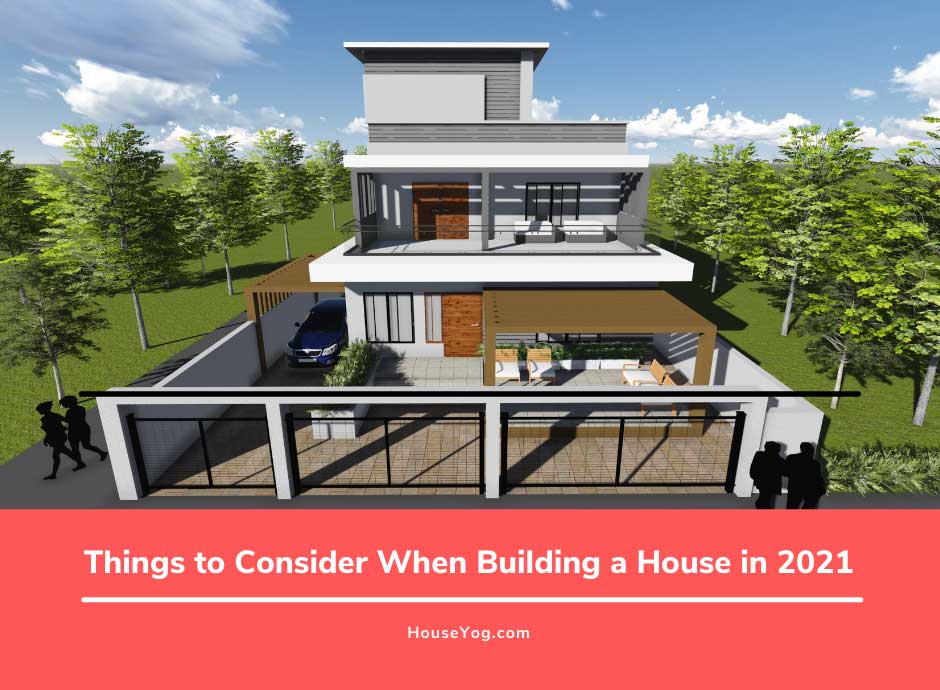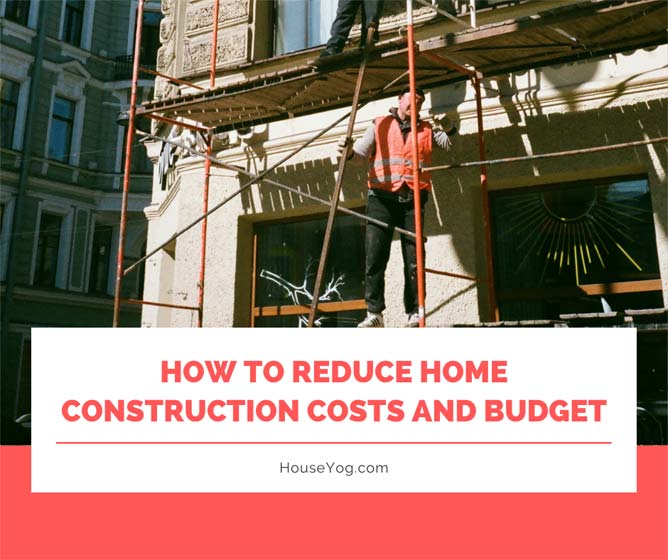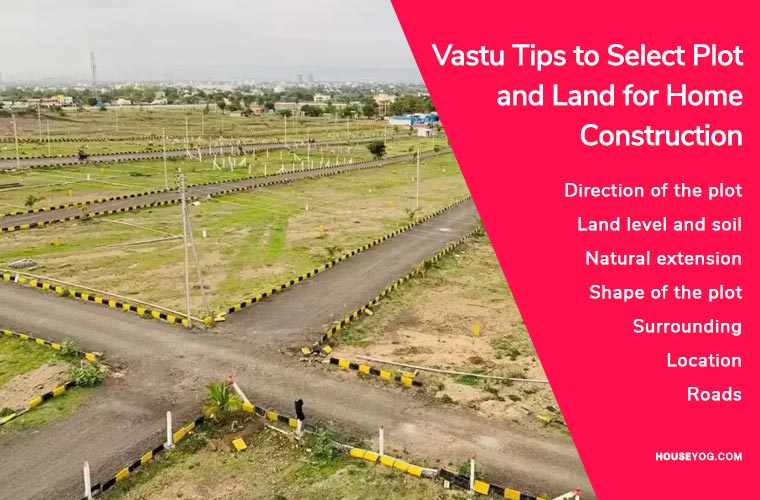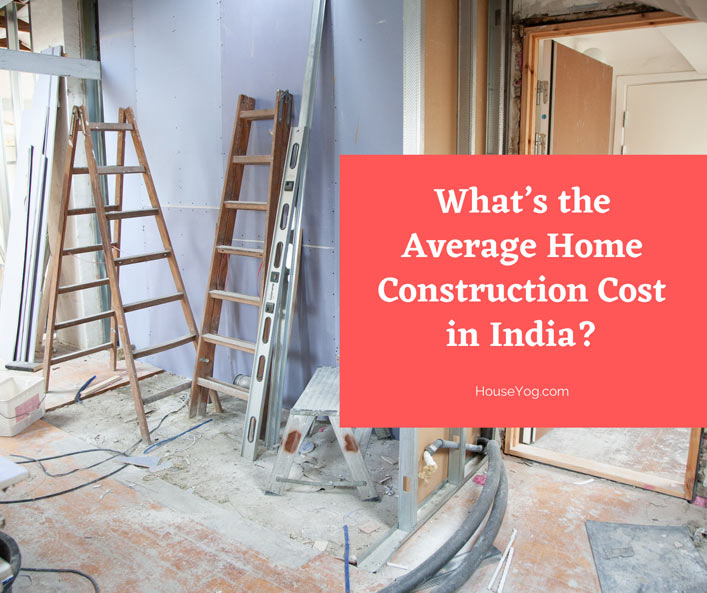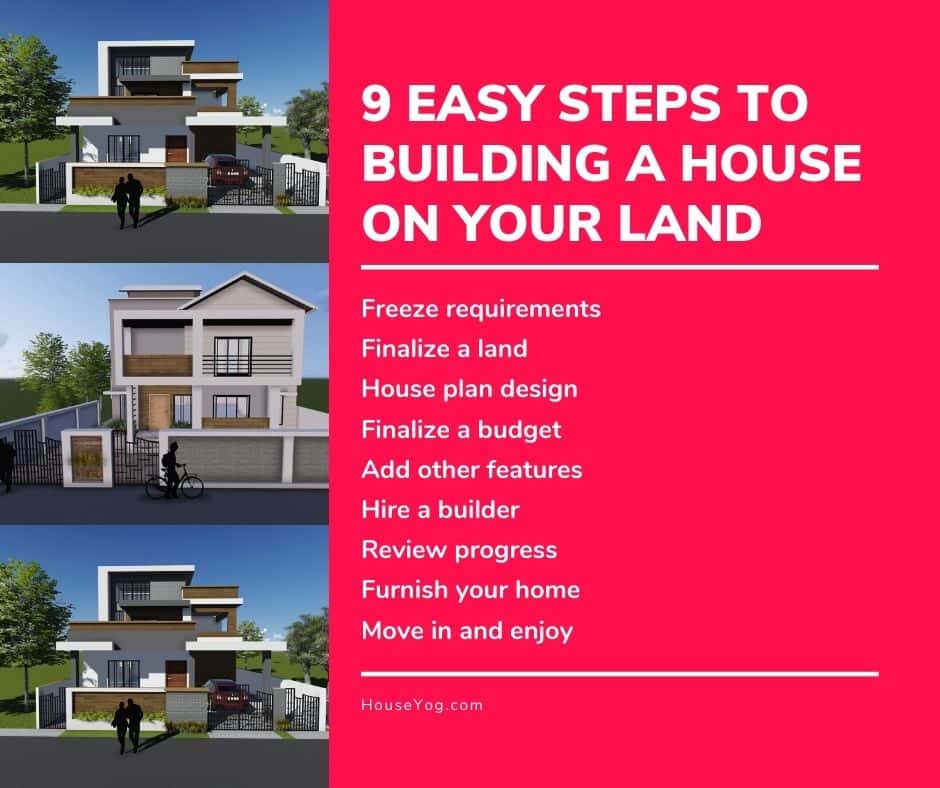Constructing a new house is a costly and time taking affair. It may take anywhere between 12-18 months of time, and hundreds of thousands of rupees to construct a new house on your plot. I am not even including the cost of the land, which itself may cost over a few lacs of rupees. Needless to say, if you want to construct a new house in India then you must think through and make a detailed home construction checklist to manage and track your project.
Managing a tracking home construction project becomes much easier when you have a detailed checklist to keep track of construction in different phases. Irrespective of whether you are building a house on your own or you are working with a single home builder, there will be certain tasks that must be tracked and managed properly.
If you are planning to construct a new house and you are looking for a construction checklist, then I have got you covered. I am sharing a detailed and the most comprehensive home construction checklist. This will help you manage everything smoothly and complete the project on time.
Home construction involved several actionable steps such as:
- Selection of plot
- Preparing an approximate budget
- Preparing the land before construction
- House plan and building elevation design
- Hiring construction contractor
- Defining scope of work
- Finalizing construction cost and payment terms
- Documentation and plan approval
- Building materials
- Engaging subcontractors
- Supervision and updates
The home construction checklist I am sharing below can help you manage and track all of these actionable steps easily.
Detailed home construction checklist and guide
Planning, managing and tracking a new home construction project can be overwhelming for many of us. Moreover, if you do not keep track of everything correctly, you may get stuck during the construction. And even end up delaying the completion of the project and shooting up the construction budget substantially.
Here’s a comprehensive home construction checklist that can help you manage and track every aspect of your home construction project.
Selection of plot
Land selection and preparation is the first step that has to be right. If you already have a plot registered in your name then you may proceed to preparing the land.
However, if you are still searching for a plot of land to build your home then spend some time looking for a plot that has the essential amenities like an approach road, water supply, electricity etc. The locality is also an important factor to be considered when selecting a plot to build a new house.
Usually, land prices are higher in established localities. However, if your budget does not permit you to buy a plot closer to the city, there is no harm in moving a little away from the main city and getting a plot in a new or upcoming locality. Buying a plot of land in a gated community is also a great choice that you may like to consider.
Preparing an approximate budget
Budgeting is very important as home construction is an expensive affair. As you are already planning to construct a house, you must have a budget in mind. Consider tentative quantity and costs of major building materials like bricks, cement, sand, steel etc.
Forget about everything for the time being and look at the savings you may have. Ideally, you should start saving and getting your income and expenses balanced from early on. Even if you plan to borrow some money from your friend, or family and through a housing loan, you need to save money to build your house. You should target to save around 20-30 per cent of the overall construction budget.
If you have saved a decent amount, then that’s great, otherwise make a quick calculation of how much it may cost to build a new house today. For the sake of calculation, you can assume the base construction price at Rs. 1100 to 1300 per sq ft of the built up area.
So if you are planning to build a house on a 1000 sq ft house, you can safely assume it will cost around Rs. 1100000 to Rs. 1300000 using standard quality materials, floor and wall tiles, basic bathroom fittings etc. Now you have the ballpark idea of construction cost, if you have the funds, then that’s just perfect. Otherwise you may like to apply for a home construction loan or look for alternate ways to raise the money for construction.
Preparing the land before construction
Now that you have a plot or land to construct a new house. The next step is to prepare the land before you can start the real construction work. Depending on the type of land, you may have to do certain preparation like clearing the land of any disturbance. Moreover, if the land is not even then you may have to level the land.
Another important thing to consider is to do the soil testing (Geotechnical Investigation). Especially, if you are constructing a multi storey building and you don’t know much about the history of the land. Land testing helps analyse the quality of land. It also helps design the structure of the building to sustain for a longer period of time. Moreover, soil testing also helps decide the depth of the foundation and overall building structure.
So you may like to tick it off before starting the foundation and construction work.
House plan and building elevation design
The next important thing to look at it is to work on a house plan and building elevation design. It’s highly recommended to get a professional architect on board.
Professional architects can add real value in designing the full building plans. An architect or engineer can help design the best house plan for your new home. They can also design building elevation that can be constructed in your budget. In fact you can discuss your budget with them. And they can design the plan keeping your budget in mind.
Architects can also create 3D building elevation designs and perspective views as per the house plan. 3D elevation designs can give you the perspective view of the building from the outside. Building elevation designs help visualize the external view of the house from the front and other sides.
However, please be mindful of expenses when choosing the external elevation design of the building because fancy looks can easily increase the construction and finishing cost of the building. For instance, if you liked the design with exterior wall tiles, then be sure to spend more than using exterior weather coat wall paints.
So, discuss the associated cost and your budget with the architect. And get the perspective elevation views designed before starting the construction work.
Once the house plan and perspective front elevation view of the building is ticked off, it’s time to bring the construction contractor on board.
Hiring construction contractor
Now that the house plan is ready, it’s time to look for a reliable builder or a home construction company to move forward. There should not be any shortage of local building contractors. And therefore it’s highly recommended to talk to at least two or three construction companies available near you.
The best way to get the most accurate home construction estimate is to share your final building plan and elevation design with the builder. That way, they can see the full plan with the total built up area to prepare a detailed bill of quantities for the construction.
However, when comparing and evaluating the offers from the builders, don’t always choose the lowest offer. Because, lowest may not be the best choice always, especially for a home construction project that can run over months. And therefore, before anything else, you should look for the credibility and quality of supplies they propose to use to construct your dream home.
Defining scope of work
Most of the builders and construction companies offer end to end construction service which may include everything from the planning stage to finishing or semi finished construction. And therefore it is important to clearly define the scope of work before signing the deal.
Workout with the contractor to define the specification of every item as per the bill of quantities they might have generated.
Clearly define the scope of work and work with total cost including materials and labor charges. If the builder is providing all the materials and labour then discuss the brands and price range for each of the items like cement, steel etc.
Finalizing construction cost and payment terms
Home construction cost can easily run in hundreds of thousands of rupees depending on the size of the house and quality of construction you want. And therefore, construction cost and payment terms must be discussed with the builder and defined in the contract.
Moreover, you discuss the total cost including the cost of the materials, labour charges and any other charges that may arise due to some reason like price rise. For instance the price of a bag of cement today may increase after three months. And therefore, it is important to discuss and sort such issues well in advance to avoid any future price disputes and surprises.
The payments to the contractor can be linked with the progress of construction work. That means, you will pay as they progress with the construction. However, some developers and builders may ask for a percentage as advance and then rest of the payment as per the progress.
Whatever be the case, make sure to define the total cost (including taxes) and payment terms well in advance before signing the contract.
Documentation and plan approval
The developer or architect can easily get the plan approved from the local building authorities. However, the house plan must be designed according to the prescribed local building guidelines. Otherwise, you may have difficulties in getting the house plan approved.
So, you should talk to the architect or the builder to get this right in the first place.
Moreover, if you plan to get a home construction loan, then you have to get the documentation right. Banks will require a different set of documents to process your construction loan. Primarily, the bank wants to ensure that you have a freehold land registered in your name. And therefore they need the deed, mutation certificate, tax receipts etc. They’ll also ask for building plan and bill of quantities with projected construction estimates to process your loan application.
Home loan processing and approval can easily take a few weeks. Therefore, if you plan to avail a home loan then spend time in getting the documentation right.
Building materials
The quality of materials you are using in the construction can directly affect the strength of the building. The builder has most likely provided you the specifications of the materials they will use. Therefore, you have to ensure that the materials being used in the construction are as per the specification.
However, there may be a situation where a particular material specified in the contract is out of stock. Or it may be simply unavailable due to high demands. In such cases, the alternate material being used must be of similar quality and standard.
Engaging subcontractors
Mostly the developer and construction companies have their own set of sub contractors. However, in some cases they tend to employ other sub contractors for different work like flooring or plastering etc. However, the sub contractors should be skilled, experienced and capable of delivering best finished work.
Secondly, if you want your own sub contractor for a specific job like plumbing or electrical work, then you must discuss the same with the builder in advance. and get the prices adjusted accordingly. Sometimes it’s better to use local resources especially for tasks that may require understanding and future support like electrical wiring or plumbing lines.
Supervision and updates
It is seriously important to supervise the construction work and get periodic updates about the progress from the builder. You should make a few surprise visits to the construction site and to oversee the work. This will help you get a clear picture of the construction work.
Moreover, if you have taken a construction loan, then the bank will release funds after reviewing the progress of the work. And therefore, it is super important to constantly monitor the progress of the construction work.
Final thoughts on construction checklist
Managing and keeping track of different aspects of constructing a new house can be overwhelming. Especially so, because it involves several tasks e.g. documentation, plan approvals, budgeting etc. It’s not going to be easy to keep track of contractors, raw materials and construction without a checklist.
However, you can easily manage and keep tack of everything using a construction checklist. A detailed construction checklist like that will help you track and manage everything much efficiently.
What else do you think one should add to the home construction checklist to make it more effective?
Share your tricks and hacks by commenting below!
Happy home construction!

